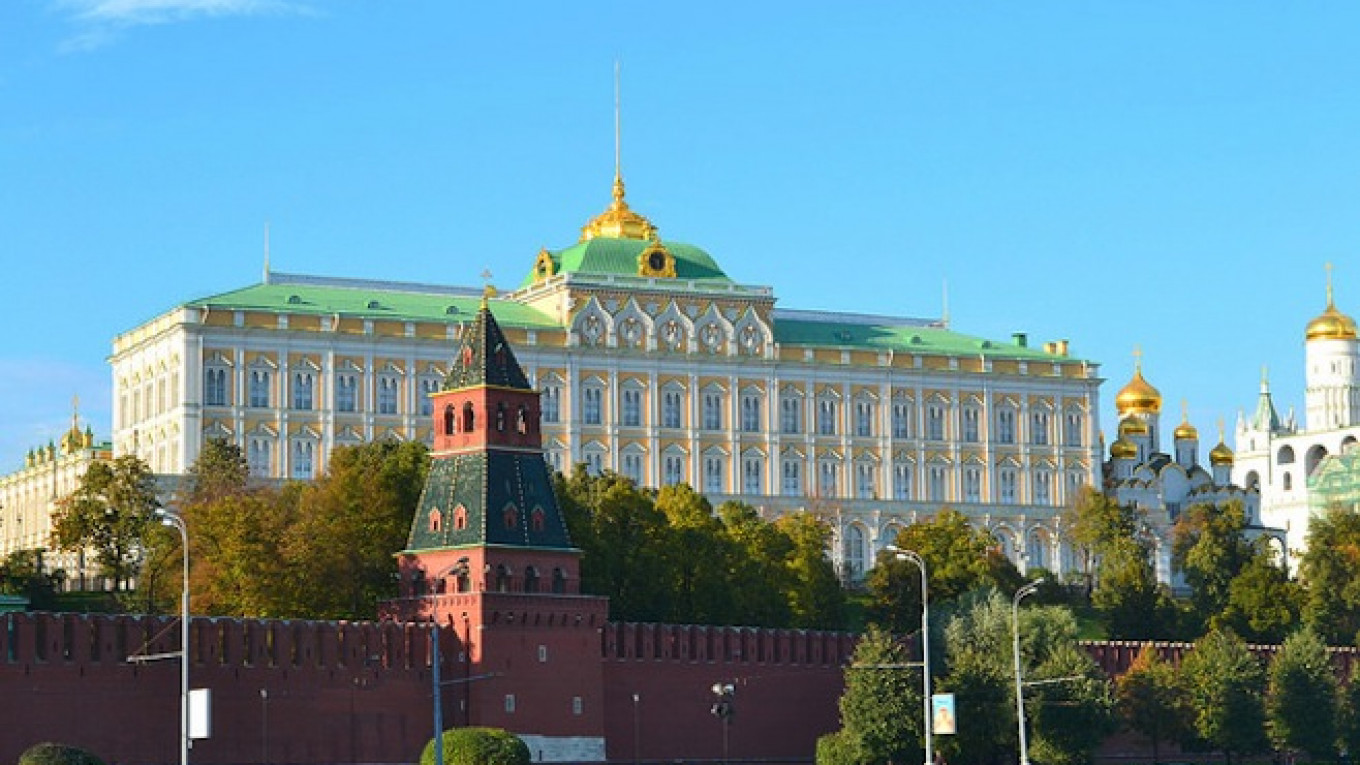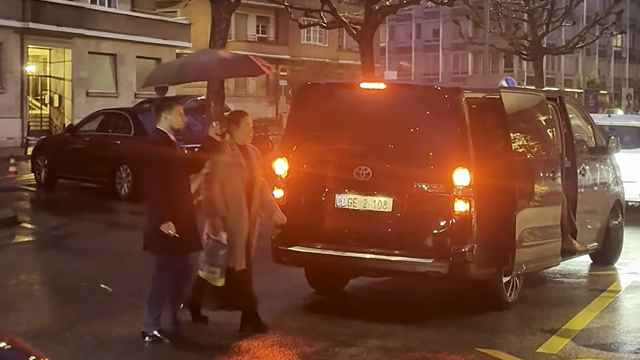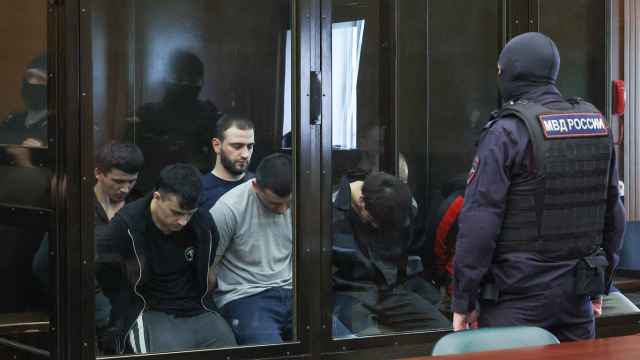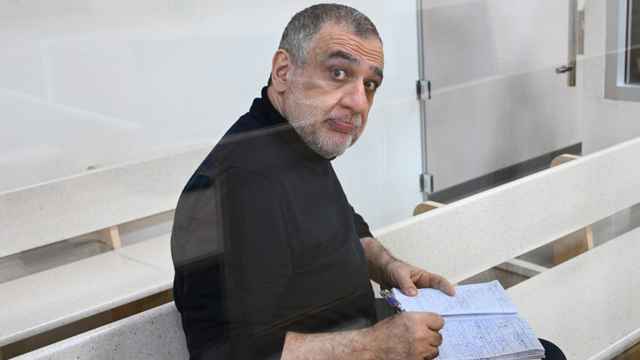President Vladimir Putin is about to sign a decree on the creation of a prize for human rights workers with overall funding of about 6 million rubles ($92,300), two major Russian newspapers reported this week, citing unidentified sources familiar with the matter.
The first prizes will be awarded in 2016, Kommersant reported, while Vedomosti said some hoped it could happen as early as the end of this year. The head of the presidential Human Rights Council, Mikhail Fedotov, told Kommersant it was a very important decision that would make the profession more prestigious and eliminate public distrust of human rights advocates.
“There are state prizes in [such spheres as] culture and arts, science and technology. But there hasn't been anything like that for human rights workers,” Fedotov was cited by Kommersant as saying Wednesday.
The news raised eyebrows in light of reforms the Kremlin has been carrying out for the last few years that critics say amount to a crackdown on nongovernmental organizations. The most contentious move was the infamous "foreign agents" law adopted in 2012 that stripped many NGOs of foreign financing and caused some of them, such as the prominent Dynasty science foundation and the Committee Against Torture, to shut their doors for good.
A list of nominees for the prize will be put together by a commission consisting of two representatives of Russia's human rights ombudsman, two members of the Civic Chamber and two members of the Human Rights Council, as well as three regional ombudsmen and three members of regional civic chambers, Kommersant reported. Those members will be appointed by the presidential administration.
In reality, prizes will be awarded to those whom the ruling elite believes to be human rights advocates, said Pavel Chikov, head of the Agora human rights organization. “Although they might honor some well-known veteran, such as Lyudmila Alexeyeva,” he was cited by Kommersant as saying Wednesday.
Alexeyeva, head of the Moscow Helsinki Group and a member of the Human Rights Council, told Kommersant she would be forced to accept the prize if it were offered to her, since her organization is now bereft of foreign funding, but called the idea of the prize “odd,” saying the Kremlin has “its own [specific] views on which organizations are useful and which are harmful.”
Contact the author at [email protected]
A Message from The Moscow Times:
Dear readers,
We are facing unprecedented challenges. Russia's Prosecutor General's Office has designated The Moscow Times as an "undesirable" organization, criminalizing our work and putting our staff at risk of prosecution. This follows our earlier unjust labeling as a "foreign agent."
These actions are direct attempts to silence independent journalism in Russia. The authorities claim our work "discredits the decisions of the Russian leadership." We see things differently: we strive to provide accurate, unbiased reporting on Russia.
We, the journalists of The Moscow Times, refuse to be silenced. But to continue our work, we need your help.
Your support, no matter how small, makes a world of difference. If you can, please support us monthly starting from just $2. It's quick to set up, and every contribution makes a significant impact.
By supporting The Moscow Times, you're defending open, independent journalism in the face of repression. Thank you for standing with us.
Remind me later.






